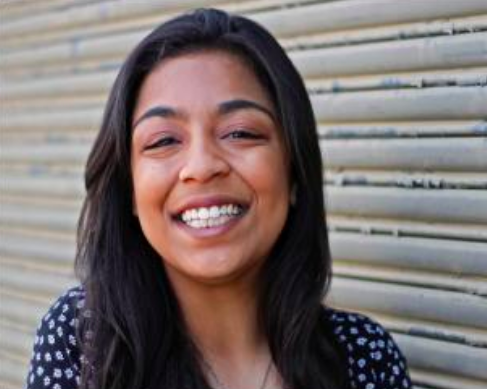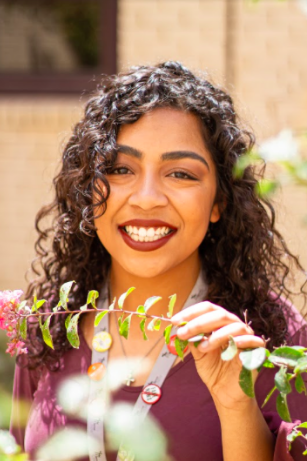
Editor’s note: this column won third place for opinion in the Press Women of Texas high school contest. It also won first place and Tops in Texas for print personal opinion columns in the ILPC contest.
“I’m not racist,” my friend said. “I’m colorblind to race. There’s no difference between you and me.”
I looked at her quizzically and racked my brain for reasons she could be this confused. She interrupted my thoughts by claiming that racism is nonexistent in society today.
I wondered how she couldn’t see racism—the rise in white supremacist and Neo-Nazi movements as well as racist comments and actions from our nation’s leaders.
I told her about my encounters with racism. I’m Black and Indian and have always struggled with being mixed race. I was told I was bred as if I were an animal. Another time, a boy told me to go back to the plantation with other slaves where I belong. People have called me a taxi driver, curryball, cotton picker and n****r. For me, these racist comments occur regularly.
Some people feel like they can be racist without repercussions, and they’re right, because racism is normalized. People can say any racial slur to me and not deal with any harsh real world consequences. Our society is turning a blind eye to racism.
What my friend said had irked me. She’s “colorblind” when it comes to skin color, but why? Aren’t all skin tones something to be proud of and recognized? She made the claim that nobody sees color, but I have seen that is not true.
• • •
My dad glanced at directions on his phone as he drove when we noticed bright red and blue lights and loud sirens. He automatically told me to call my mother. Every time he gets stopped by the police, he calls her to make sure he has a witness if anything turns dangerous. My dad is a large black man at 6 feet tall who towers over the rest of my family. He is the kind of man who gets targeted by “random” TSA checks, despite his friendly face.
I hid my shaking hands in my lap as the officer approached. That year, there had been a string of police shootings of unarmed black men without repercussions for officers. Even in Dallas, a black man was shot in his own apartment by a police officer.
From a young age, I was fearful of people with badges. I was given the talk that most children of color are given, saying you always have to be cautious and extra polite with police because you never know if they will make a tragic snap judgement based on skin color.
“Did you not see the sign?” the officer asked. “It’s clear as day right there.”
He sounded aggravated, and my father, the strongest man I know, submissively mumbled “yes sir” and “no sir.” I had never seen him act like this. He was being stomped all over and couldn’t do anything. If he did, he didn’t know if the officer would target him for his race claiming he was “threatening”, putting us both in danger.
• • •
I’m not the most confident person, but I’ve always loved my skin color. Everybody has a unique skin tone that should be worn with pride. Though I struggled with being mixed race, I realized it means experiencing two cultures. I wear pride for my ethnicities through my skin color.
When we become “colorblind”, we disregard a person’s culture that provides experiences and beliefs that make up a large part of people. By ignoring skin color, we disregard people and what makes them unique, making people lose a sense of self. This keeps people from achieving self love.
Society needs to see the beauty in their own skin colors. In America, white people darken their skin through tans. While they get to look and act like a minority as they please, they still get to maintain white privilege, and don’t have to go through the daily trials and tribulations of a person of color. They get to choose to have dark skin when it’s convenient, but I don’t get that choice. My dark skin stays through good times and hardships.
When people call themselves colorblind, they think that it combats racism. In reality, it ignores race. It would be like trying to combat sexism by not acknowledging someone’s gender. Society needs to recognize all skin colors as beautiful, not view them as better or worse than one another based off of ignorant beauty standards. We need to value skin colors instead of being colorblind to them.













